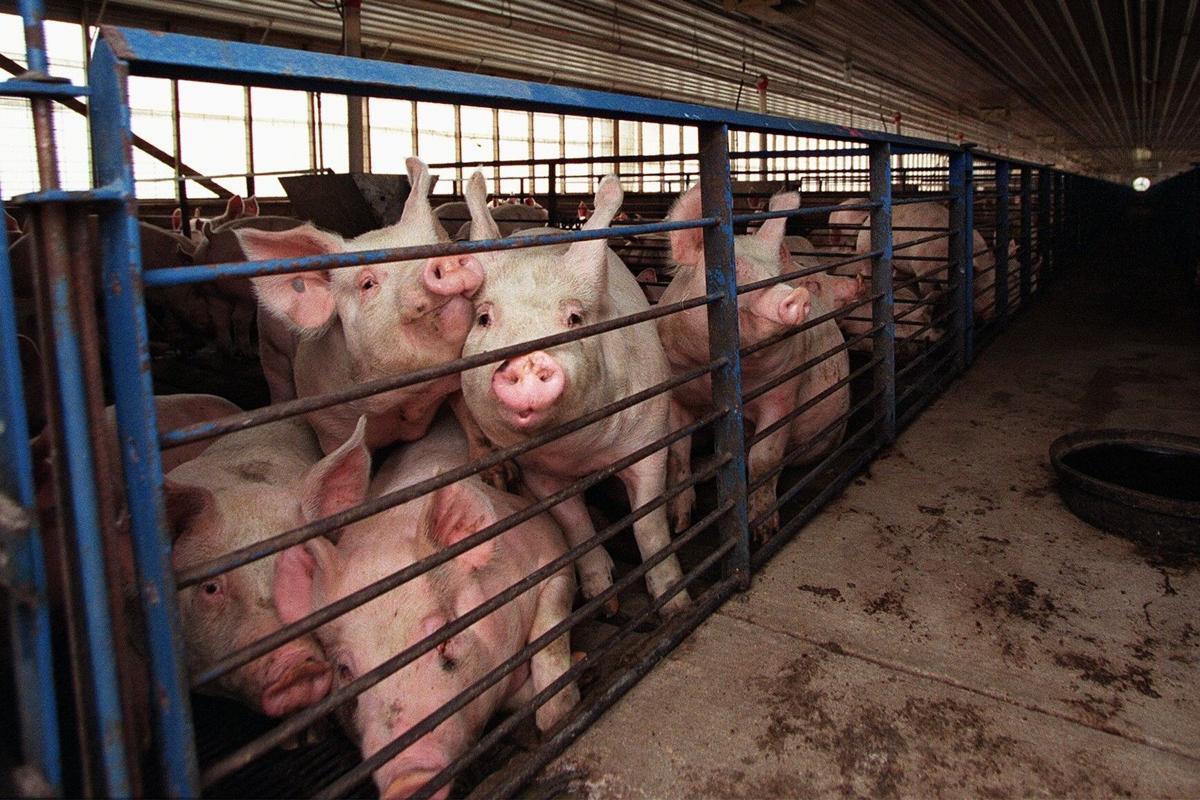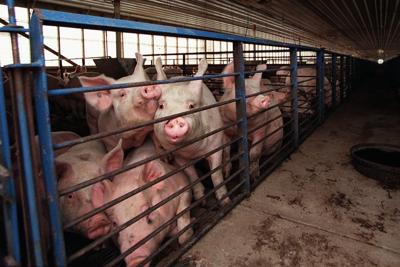JEFFERSON CITY ŌĆö A panel of state lawmakers is set to debate legislation Monday that would crack down on companies that collect waste from meatpacking facilities and spread it as free fertilizer on Missouri farmland.
In a sign of the urgency surrounding the issue, the House Conservation and Natural Resources Committee is set to hear debate on two proposals designed to address the controversial practice, which has rankled rural homeowners because of strong odors and concerns about fouling the stateŌĆÖs streams and rivers.
The hearing, which is among the first scheduled as the House enters the second week of its annual session, comes against the backdrop of a handful of court cases and regulatory maneuvers that have essentially halted operations of companies like Arkansas-based Denali Water Solutions within the state.
People are also reading…
The latest courtroom win came Dec. 18, when Cole County Judge Cotton Walker denied DenaliŌĆÖs request for a temporary restraining order against the Missouri Fertilizer Control Board. The company sued in order to continue operating essentially unregulated in the state.
A hearing on a permanent injunction is scheduled for Jan. 16.
At issue is DenaliŌĆÖs contention that it is exempt from state fertilizer laws because it doesnŌĆÖt sell its waste products, which it collects in tanker trucks from companies that process beef, chicken and turkey.
A restraining order could have allowed the company to resume operations in the state without the need to get permits from the Missouri Department of Natural Resources.
Walker disagreed with the companyŌĆÖs claim that it is being unfairly penalized.
ŌĆ£Denali has not shown that the costs of complying with the Clean Water Law will drive it out of business,ŌĆØ he wrote in the Dec. 18 order.
ŌĆ£That may be expensive in the short term, but Denali may have to charge its meat and food processing plant customers more for the service it offers of disposing of their waste until Denali obtains permits with which it will comply,ŌĆØ Walker wrote. ŌĆ£The food processors will have to choose whether it would be more cost-effective to pay Denali or arrange disposal with permitted wastewater treatment facilities.ŌĆØ
Along with fighting the state in court, Denali has hired Jefferson City lobbyist James Harris to represent its interests in the legislative session.
The House committee will hear two bills introduced by Republican lawmakers who represent rural areas that have been affected by the waste operations.
Rep. Dirk Deaton, R-Noel, wants to close what he sees as a loophole that could allow a company to be exempted from needing a permit from the Department of Natural Resources if it is licensed by the stateŌĆÖs fertilizer board.
Deaton represents residents in Newton and McDonald counties in southwest Missouri who are angry about the smells and possible risks of having meatpacking sludge applied to lands around their homes.
Rep. Ed Lewis, R-Moberly, wants more testing and sampling of the material by DNR. He represents residents who have been fighting the storage of the waste in a large lagoon in Randolph County.
ŌĆ£The department may require surface water sampling and groundwater monitoring wells on a site-specific basis when ... the land application fields are located in hydrologically sensitive areas where the groundwater may be compromised,ŌĆØ LewisŌĆÖ bill says.
Lewis told the Post-Dispatch on Friday that he expects the two proposals will be combined before they move to the full House for further debate.
Sen. Jill Carter, R-Granby, also introduced a plan designed to strengthen the permitting process, potentially making it harder for companies to collect the material from meatpackers unless it is tested and deemed safe for spreading.
ŌĆ£This is to ensure that safer processing of those materials takes place before application to help keep Missouri land and waterways unharmed,ŌĆØ Carter told the Post-Dispatch earlier.
A hearing on CarterŌĆÖs proposal has not been scheduled.
The legislation is Hous Hous
Missouri's Legislature reflects the federal structure in many ways. Video by Beth O'Malley

















